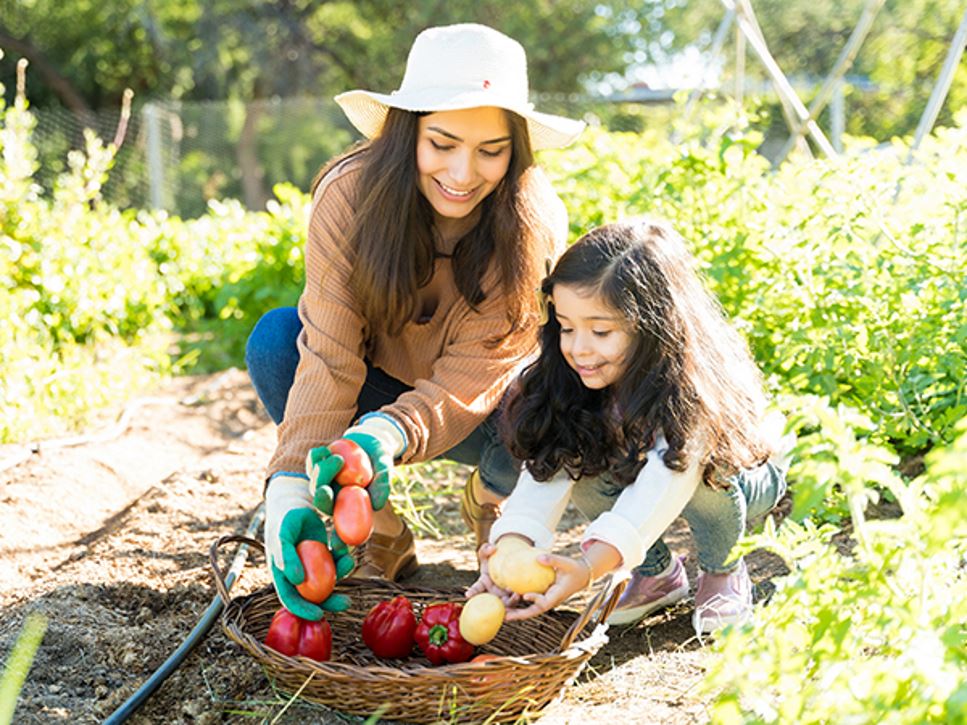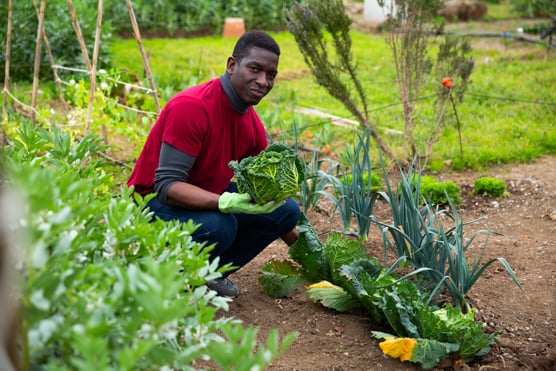Imaginative Gardening Ideas to Maximize Tiny Areas and Returns
Imaginative Gardening Ideas to Maximize Tiny Areas and Returns
Blog Article
Unlocking the Advantages of Horticulture: A Thorough Consider the Various Types and Their Influence On Well-Being
Discovering the multifaceted advantages of gardening reveals a spectrum of techniques that significantly boost private wellness. From veggie and natural herb yards to container and raised bed arrangements, each kind provides distinct advantages that extend past mere farming. These activities not just foster physical health via active involvement yet likewise add to mental health by reducing stress and motivating mindfulness. As we examine these varied gardening approaches, it ends up being obvious that their influence can resonate on individual, social, and environmental levels, prompting a better take a look at just how these links develop a natural story of all natural wellness.
Kinds Of Gardening

Flower gardening, one more popular category, stresses the aesthetic allure of cultivated blooms. This kind can enhance landscapes and promote biodiversity by bring in advantageous pollinators. Herb horticulture involves growing aromatic and culinary plants, adding both to cooking and all-natural remedies.
Container gardening offers flexibility, allowing people with minimal room to engage in horticulture by using pots and planters. This approach is especially prominent in metropolitan settings. Elevated bed horticulture, on the other hand, entails producing raised plots that improve dirt water drainage and accessibility, making it easier for gardeners to manage their plants.
Lastly, community horticulture fosters partnership amongst people in common rooms, advertising social communication and collective responsibility. Each type of gardening serves unique objectives and accommodates different preferences, making gardening a functional activity that can be tailored to private requirements and atmospheres.
Mental Wellness Advantages
Taking part in various sorts of gardening not only produces tangible benefits such as fresh fruit and vegetables and stunning flowers but likewise provides significant psychological health benefits. Research indicates that horticulture can be an effective device for reducing anxiety, anxiousness, and clinical depression. The act of tending to plants and cultivating a yard promotes a sense of purpose and achievement, which can improve total psychological health.
Moreover, gardening encourages mindfulness, as it requires individuals to concentrate on today minute, whether it be growing seeds or supporting growth. This mindfulness practice can bring about minimized rumination and improved state of mind stability. The exposure to all-natural environments during gardening has additionally been connected to enhanced cognitive working and lowered sensations of tiredness.
Social communication plays an essential role in psychological health, and neighborhood horticulture campaigns offer possibilities for people to link with others, fostering a sense of belonging. The common review experience of gardening can cultivate relationships and assistance networks, even more boosting emotional durability.
Physical Wellness Perks
Several individuals might not recognize that horticulture additionally supplies considerable physical wellness benefits. Participating in gardening tasks calls for a variety of physical activities, consisting of flexing, lifting, excavating, and planting, which collectively add to improved toughness, flexibility, and endurance. These actions can improve cardiovascular wellness by promoting a raised heart price, thus reducing the risk of heart problem.
Additionally, horticulture can serve as a moderate-intensity exercise, helping people achieve recommended physical task degrees. Research studies indicate that normal involvement in horticulture can burn significant calories-- about 200-400 calories per hour, depending on the intensity of the jobs performed. Such calorie expense is useful for weight monitoring and overall metabolic health.
In addition, direct exposure to sunlight throughout gardening can promote the synthesis of vitamin D, which plays a vital duty in keeping bone health and supporting immune feature. Additionally, the act of gardening usually includes collaborating with dirt, which has been connected to possible psychological and physical health advantages as a result of the existence of useful microorganisms. Gardening.
Social Links Through Gardening
The communal elements of gardening foster meaningful social connections among people. Community yards, in specific, act as lively hubs where individuals from varied histories come together, cultivating not just plants but likewise connections. These shared spaces urge cooperation, enabling individuals to exchange expertise, abilities, and resources, thereby boosting their gardening experience and fostering a sense of belonging.
Interaction in horticulture tasks typically leads to the development of relationships and assistance networks. Individuals often unify for common goals, such as growing seasons, harvest events, or academic workshops, which reinforce interpersonal ties and produce a feeling of community. Such communications can minimize feelings of isolation and enhance mental he said health, as people locate friendship and friendship in shared undertakings.

Ecological Influence of Gardening
Gardening dramatically adds to environmental sustainability in several ways. Among one of the most remarkable benefits is the enhancement of biodiversity. Home yards supply vital environments for numerous varieties, including pollinators such as bees and butterflies, which are important for ecological community health and wellness. By growing varied plant species, garden enthusiasts can create a well balanced setting that supports both plants and fauna.

Additionally, yards play an important function in water conservation. Tactical landscapes, including native plants Check This Out and xeriscaping, decrease water usage and avoid drainage, thereby protecting local rivers from air pollution.
Verdict

In conclusion, horticulture serves as a multifaceted task that boosts health throughout different domains. The varied sorts of horticulture-- including veggie, flower, natural herb, container, and raised bed-- contribute to mental and physical wellness, foster social links, and advertise environmental sustainability. By taking part in gardening methods, people can experience better lifestyle while also supporting neighborhood bonds and eco-friendly health. Ultimately, the holistic advantages of horticulture emphasize its importance as an important component in boosting total health.
Report this page